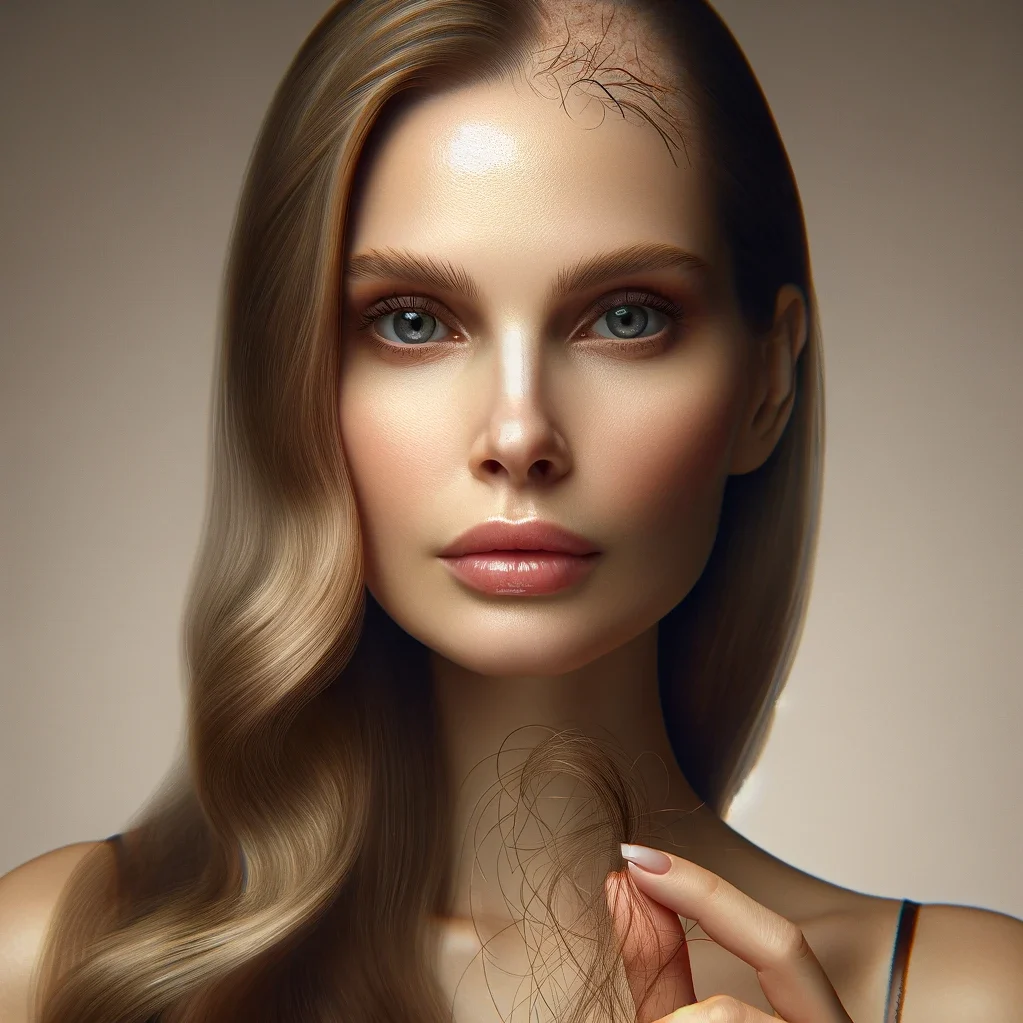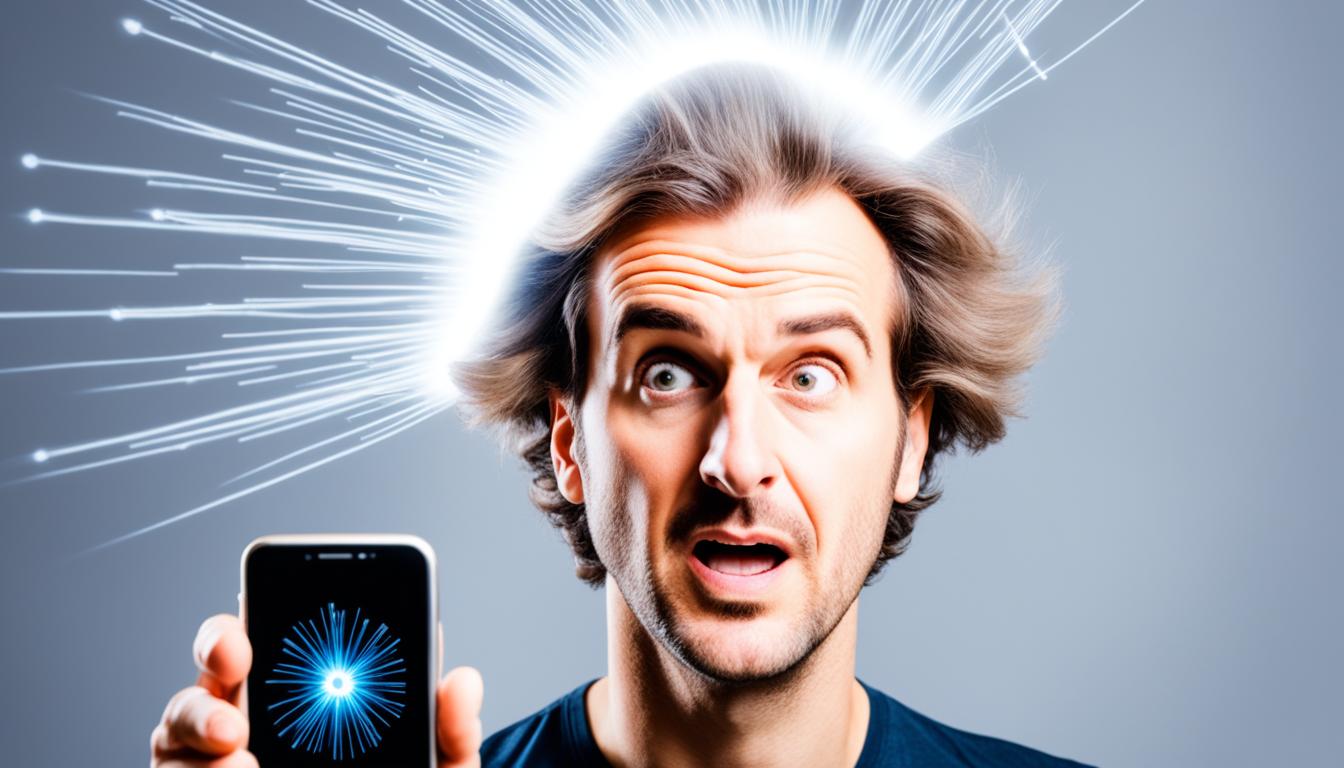Did you know that prolonged cell phone use could potentially contribute to hair loss? It may seem surprising, but studies have shown a potential link between exposure to cell phone radiation and hair thinning. A 2016 study published in the Journal of Cosmetology and Trichology examined a 46-year-old male patient who experienced an unusual hair loss pattern around his left ear, which could be attributed to his prolonged cell phone use.
Researchers have identified three ways in which cell phone radiation could lead to hair loss. Firstly, it can cause DNA breakage, which can impair the functioning of hair follicles. Secondly, it may have genotoxic and hormonal effects, disrupting the normal hair growth cycle. Lastly, radiation exposure can disrupt the regulation of hair growth, leading to hair thinning.
To help mitigate the potential risk of hair loss from cell phone radiation, experts recommend using antioxidants, vitamins, and minerals to support hair regrowth. Additionally, limiting cell phone usage and maintaining a healthy hair care routine can also aid in preserving hair health and growth.
Key Takeaways:
- Prolonged cell phone use has been associated with a potential risk of hair loss.
- Cell phone radiation can cause DNA breakage, hormonal effects, and disruption of hair growth regulation, leading to hair thinning.
- Using antioxidants, vitamins, and minerals and limiting cell phone usage can potentially support hair regrowth.
The Relationship Between Screen Time and Hair Loss
Excessive screen time, especially on smartphones, has been linked to various health concerns, including hair loss. A study published in the Journal of Cosmetology and Trichology found a relationship between hair loss and long mobile calls, particularly when the phone was held against the ear.
Screen time can disrupt sleep patterns due to the blue light emitted by screens, inhibiting the production of melatonin, the sleep hormone. Poor sleep, stress, and elevated cortisol levels can contribute to hair loss.
To minimize the potential effects of screen time on hair loss, it is recommended to:
- Limit screen usage before bedtime
- Reduce exposure to blue light
- Manage stress levels
By implementing these measures, individuals can reduce the impact of screen time on their hair health and promote hair growth.
Common Causes of Hair Loss and Baldness
Hair loss and baldness can stem from a variety of causes, including emotional and psychological issues such as stress and anxiety. When we experience intense emotional turmoil, our bodies can respond by disrupting the normal hair growth cycle. This can lead to temporary or chronic hair loss.
In addition to emotional factors, hormonal imbalances play a significant role in hair loss. Both men and women can be affected by hormonal shifts, but men are particularly prone due to higher levels of male hormones. Fluctuations in testosterone and dihydrotestosterone (DHT) can cause hair follicles to shrink and result in hair thinning and baldness.
Furthermore, thyroid issues can have a direct impact on hair health and growth. Conditions like hypothyroidism (underactive thyroid) and hyperthyroidism (overactive thyroid) can disrupt the balance of hormones in the body, leading to hair loss. It is essential to address any thyroid-related concerns to maintain healthy hair.
Another common cause of hair loss is malnutrition. When our bodies lack vital vitamins and minerals, such as B12 and iron, hair follicles can become weak and brittle. Ensuring a well-balanced diet with adequate nutrients is crucial for promoting healthy hair growth.
Auto-immune diseases, such as alopecia, are also linked to hair loss. These conditions occur when the immune system mistakenly attacks hair follicles, resulting in hair thinning or complete baldness. Seek medical guidance for proper management and treatment of auto-immune disorders.
Lastly, allergies and infections affecting the scalp can contribute to hair loss. Conditions like scalp dermatitis or fungal infections not only cause discomfort but can also damage hair follicles, leading to temporary or permanent hair loss. Addressing these issues promptly is crucial for maintaining a healthy scalp and hair.
FAQ
Can cell phone radiation cause hair loss?
Studies have shown that prolonged cell phone use may contribute to hair loss. A 2016 study published in the Journal of Cosmetology and Trichology found a potential link between exposure to cell phone radiation and hair loss. The study observed a 46-year-old male patient with an unusual hair loss pattern around his left ear, which could be attributed to prolonged cell phone use. The researchers identified three ways in which cell phone radiation could lead to hair loss: DNA breakage, genotoxic and hormonal effects, and disruption of hair growth regulation. The study also suggested that using antioxidants, vitamins, minerals, and limiting cell phone usage could aid in hair regrowth.
Is there a relationship between screen time and hair loss?
Excessive screen time, especially on smartphones, has been linked to various health concerns, including hair loss. A study published in the Journal of Cosmetology and Trichology found a relationship between hair loss and long mobile calls, particularly when the phone was held against the ear. Screen time can disrupt sleep patterns due to the blue light emitted by screens, inhibiting the production of melatonin, the sleep hormone. Poor sleep, stress, and elevated cortisol levels can contribute to hair loss. To minimize the potential effects of screen time on hair loss, it is recommended to limit screen usage before bedtime, reduce exposure to blue light, and manage stress levels.
What are the common causes of hair loss and baldness?
Hair loss can have various causes, including emotional and psychological issues such as stress and anxiety. Hormonal imbalances, both in men and women, can contribute to hair loss, with men being more susceptible due to higher levels of male hormones. Thyroid issues, such as hypothyroidism or hyperthyroidism, can cause hair loss. Malnutrition, especially deficiencies in vitamins and minerals like B12 and iron, can impact hair health and lead to hair loss. Auto-immune diseases, such as alopecia, can also cause hair loss. Allergies and infections of the scalp can contribute to hair loss as well.

